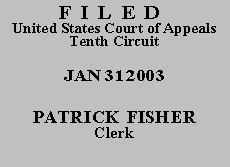

| GLENDORA,
Plaintiff - Appellant, v. JACKIE SELLERS; NANTZ RICKARD; PUBLIC ACCESS COPORATION OF THE DISTRICT OF COLUMBIA, and its officers and board; NATIONAL ASSOCIATION OF TELECOMMUNICATIONS OFFICERS AND ADVISORS; DARRYL ANDERSON; BROOKLYN COMMUNITY ACCESS TELEVISION; ONIDA COWARD MAYERS; MARILYN JACKSON; DOMINGO MARTIN; OMAR MALIK; NEICOLE A. GOURDINE; MULTNOMAH COMMUNITY TELEVISION; JUDY GRACE; CHARLES F. DOLAN; JAMES L. DOLAN; ROBERT S. LEMLE; MARCK BUDILL; CHARLES A. FORMA; MARYCE CUNNINGHAM; BRIEN MCNEIL; DIANNE BENNETT; AMY VAN HORN; CHRISTINE SAVARINO; BRENDA CHERRY; CABLEVISION SYSTEMS CORPORATION; ROBERT CALLAGY; and SATTERLEE/STEPHENS/BURKE/ BURKE, Defendants - Appellees. |
|
Glendora, a New York resident appearing pro se, appeals the district court's judgments dismissing her complaint for lack of personal jurisdiction and improper venue. A group of appellees contend that plaintiff's notice of appeal was untimely as to them because they were dismissed on August 3, 2001, but plaintiff did not file her notice of appeal until March 14, 2002. The district court, however, did not dismiss the last remaining defendants until February 20, 2002. An order adjudicating fewer than all claims of all parties is not appealable until the entire action is ultimately decided. See Fed. R. Civ. P. 54(b). Plaintiff's notice of appeal was timely filed.
Plaintiff filed an initial complaint and two amended complaints in the District of New Mexico, alleging that the defendants violated her constitutional rights and the Cable Communications Policy Act of 1984, 47 U.S.C. § 531(e), by refusing to telecast her television program on their public access channels. Most of the defendants filed motions to dismiss under Fed. R. Civ. P. 12(b), alleging lack of personal jurisdiction and/or improper venue. They presented evidence that they were not residents of New Mexico, and did not operate or transact any business in New Mexico, have property or employees in New Mexico, or otherwise have contacts with New Mexico. Plaintiff did not allege any contacts or wrongdoing of any of the defendants in New Mexico in her complaints or in response to the motions to dismiss. She stated that she "chose New Mexico federal court because New Mexico knows how to do public access [and] New York and [the District of Columbia] do not." R. Vol. II, Doc. 30, at 4 (all capitalization deleted).
In a series of well-analyzed orders, the district court granted the defendants' motions, ruling that there were insufficient minimum contacts between the defendants and New Mexico, the forum state, to give it personal jurisdiction over the defendants or to conclude it was the proper venue. A remaining group of defendants did not answer or file motions to dismiss. Because plaintiff did not allege any contacts or wrongdoing by these defendants in New Mexico and all of these defendants had been served outside New Mexico, the district court ordered plaintiff to show cause why these defendants should not also be dismissed for lack of personal jurisdiction. Because plaintiff's response failed to show why the district court had jurisdiction over these defendants or why venue in the District of New Mexico was proper, the district court dismissed these remaining defendants as well.
Because plaintiff presented no colorable basis for the district court's exercise of personal jurisdiction over the defendants, the district court correctly dismissed her complaints. We affirm the dismissals for substantially the same reasons set forth by the district court.
Plaintiff also contends the district court abused its discretion by its imposition of restrictions on her future case filings in the District of New Mexico. A district court has the inherent power to regulate the activities of "litigants with a documented lengthy history of vexatious, abusive actions, so long as the court publishes guidelines about what the plaintiff must do to obtain court permission to file an action, and the plaintiff is given notice and an opportunity to respond to the restrictive order." Werner v. Utah, 32 F.3d 1446, 1448 (10th Cir. 1994); see also Tripati v. Beaman, 878 F.2d 351, 352 (10th Cir. 1989) ("A district court has power under 28 U.S.C. § 1651(a) to enjoin litigants who abuse the court system by harassing their opponents.").
Here, it is clear that plaintiff's case filings have amounted to a pattern of malicious, abusive, and frivolous litigation. In the case at hand, plaintiff's decision to file a suit against defendants in the District of New Mexico, when it is patently clear that New Mexico has no relation to any of the claims or parties, can only be characterized as abusive conduct. Indeed, plaintiff has a history of misusing the courts by filing lawsuits claiming cable companies violated federal law by not telecasting her television program. See, e.g., Glendora v. Anderson, No. 02-15608, 2002 WL 31102957 (9th Cir. Sept. 9, 2002); Glendora v. Levin, No. 01-1776, 2001 WL 1587415 (6th Cir. Dec. 11, 2001). Plaintiff also has filed at least fifteen petitions with the Supreme Court, which eventually denied her authorization to proceed in forma pauperis based on its finding that her petitions were frivolous. See Glendora v. Porzio, 523 U.S. 206 (1998); Glendora v. DiPaola, 522 U.S. 965 (1997).
It is also clear from the record that the district court complied with due process requirements by providing plaintiff with notice of the proposed filing restrictions and an opportunity to respond. We therefore find no abuse of discretion on the part of the district court in imposing those restrictions.
The judgment of the United States District Court for the District of New Mexico is AFFIRMED.
Entered for the Court
Circuit Judge
*. This order and judgment is not binding precedent, except under the doctrines of law of the case, res judicata, and collateral estoppel. The court generally disfavors the citation of orders and judgments; nevertheless, an order and judgment may be cited under the terms and conditions of 10th Cir. R. 36.3.